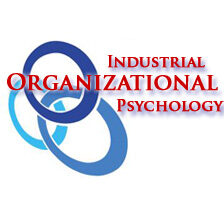 An international business woman born and raised in Istanbul, Turkey, now 39, I have spent the last several years living in New Jersey with my beautiful family, where I can commute easily to the marketing capital of the world, New York City. I now hold a Master’s Degree from XXU in Marketing - Integrated and Digital – along with more than a decade of professional experience in Marketing and Management. I also hold a certificate in Brand Management. Thus, I feel strongly that I am a natural choice and a very good fit with the PHD Program in Organizational Behavior at XXXX University, with your diversity, global perspective, and focus on the implementation of innovation.
An international business woman born and raised in Istanbul, Turkey, now 39, I have spent the last several years living in New Jersey with my beautiful family, where I can commute easily to the marketing capital of the world, New York City. I now hold a Master’s Degree from XXU in Marketing - Integrated and Digital – along with more than a decade of professional experience in Marketing and Management. I also hold a certificate in Brand Management. Thus, I feel strongly that I am a natural choice and a very good fit with the PHD Program in Organizational Behavior at XXXX University, with your diversity, global perspective, and focus on the implementation of innovation.
Surfing as well as skiing have been a big part of my life and reflect my lack of fear and passion for intense action. I started surfing very late and I remember my instructor telling me: ”Try a few waves before you find the ideal one, each wave is a unique experience, but in the end there’s no feeling as satisfying and euphoric as catching that perfect wave” That’s the time I began to realize every experience emerges as a significant predictor of the ultimate goal of your life. My experience at XXU gave me a chance to re-establish my life goals once more and do my very best to lay a foundation upon which to achieve them. I feel very strongly now that I could profit a great deal by earning a PHD, especially in Organizational Behavior, and particularly at XXXX, in order to fully round out my education in such a way that I will be able to make my maximum professional contribution to my society. Your PHD Program in Organizational Behavior at XXXX will prepare me for a lifetime of additional learning and research with respect to employee gender, motivation, and especially performance.
Serving as Team Leader for our Global Google Online Challenge Project at XXU was the highlight of my professional life so far and when I think about it I miss academic community and camaraderie – the challenge. I day dream about writing a doctoral dissertation in the area of employee motivation based on self-management, along with differences in this area with respect to diversity and gender. Nothing excites me more than the analysis of employee needs and how they are related to performance, the never-ending search for increasingly effective organizational models in which employee satisfaction is treated as a top first priority.
While working at XXXX’s, the company consolidated and the New York office ended up being the headquarters, so I had a chance to experience all the challenges of organizational restructuring and in two years I was promoted and given responsibility for the Marketing Departments of all branches of XXXX’s in United States with (+50 million customers) database. I gained Analytical techniques to provide insights and enhance data driven strategies by using a variety of software tools.
From 2011 through 2014, I built my own business along with several associates, EventASL LLC, New York, NY. 2) We specialize in private social events featuring full catering capabilities, custom entertainment and all inclusive packages. While developing the company, I spearheaded all planning activities from concept to execution for high-end, limited attendance events for young professionals in NYC. I was also responsible for the analysis, support and maintenance of the company website and social media marketing campaigns. I hired an IT person to help me launch the website and then took classes online so as to be able to maintain, improve, and enhance it on my own, launching media initiative that generated thousands of leads. This experience inspired me to earn my Master’s at XXU in a marketing program focused on digital marketing. This experience, as well as working at XXXX’s, taught me a great deal about the organizational behavior of Americans generally speaking, and New Yorkers in particular.
One recent highlight for me was taking Steve Blank’s Lean Startup Course, helping me to better appreciate the value of empowering employees so that they synchronize with each other and share their skills; thus organizations could expect those employees to market the products or services to the customers in the most effective ways? As the marketplace becomes increasingly competitive, enhancing employee motivation and effort is critical to staying ahead of the competition. Employee motivation needs and employee performance needs could be the disruption that makes a difference in the organizations.
I am especially looking forward to working with Professor XXXX since I especially admire his research in the area of employee motivation and self-management. His recent research dealing with holacracy and transparency as they relate to employee motivation is particularly impressive. I would be more than honored if I could earn a spot in Professor XXXX’s research group. It would also be a special privilege to study under Professor Gino, since I also find her research concerning self-serving biases and motivated information processing to be especially inspiring. In order an organization have the full power of employees through self-management it should emphasize the diversity of that power. I would be honored to work with Professor XXXX, since his recent researches based on diversity and I would like to do further research on how the motivation based on employee centered/powered organizations could be able to boost the diversity a? Where as Professor XXXX stated that managers work around performance systems but ratings don’t boost diversity
I love surfing because surfing is one of the few sports that you look ahead to see what's behind and it is a unique experience of feeling the true freedom and the connection with the world at the same time. I like thinking challenges as waves; we can not stop them coming but we can learn how to surf! The waves as challenges can not be rushed or forced, you must slow down and allow for the process and wait for the perfect wave (option) to arise. For me, that wave is now: XXXX’s PHD in Organizational Behavior. I rise to the occasion as a Turk, a woman, and a New Yorker.
I thank you for considering my application.

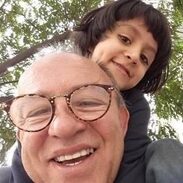
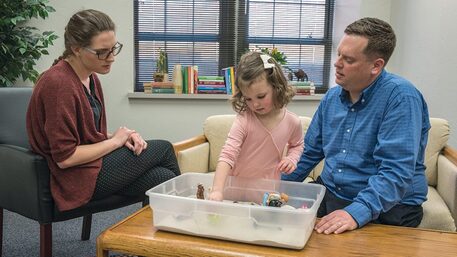 I am extremely highly motivated to become a licensed mental health counselor specializing in Marriage and Family therapy primarily as a result of having spent 18 years as a member of our Armed Forces and having learned all too well how military life generally adds great strain to a marriage. I have also learned first-hand through trial and error how certain strategies are more helpful than others for saving marriages and families from the frequently painful consequence of divorce. Now 42 years old, I seek career advancement in new directions by earning the MS Degree in Counseling at XXXX University and becoming a certified mental health counselor, so that I might put what I have learned to work helping so save some marriages and helping those that are beyond repair to navigate a divorce process that is as amicable as possible.
I am extremely highly motivated to become a licensed mental health counselor specializing in Marriage and Family therapy primarily as a result of having spent 18 years as a member of our Armed Forces and having learned all too well how military life generally adds great strain to a marriage. I have also learned first-hand through trial and error how certain strategies are more helpful than others for saving marriages and families from the frequently painful consequence of divorce. Now 42 years old, I seek career advancement in new directions by earning the MS Degree in Counseling at XXXX University and becoming a certified mental health counselor, so that I might put what I have learned to work helping so save some marriages and helping those that are beyond repair to navigate a divorce process that is as amicable as possible.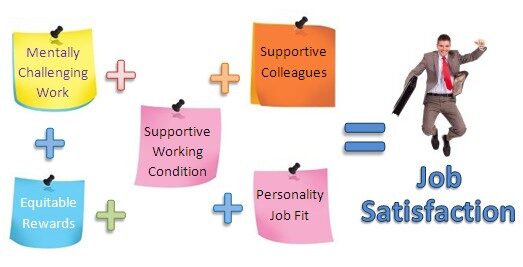 Now 24 years old, half Cuban and half Spanish, Miami has always been my home. I invested much of my time growing up dancing ballet from the age of 2 until I was 15. I also played piano and tennis – both very well, still do; but, it was ballet that was my central dream. My performances were always lauded and I was told that I had great potential to be the very best. In truth, however, there were always a handful of other girls who were one little step ahead of me; and in ballet only the very best of the best continue. My consolation has been psychology, which I had already embraced as my career choice by the time that I was finished high school.
Now 24 years old, half Cuban and half Spanish, Miami has always been my home. I invested much of my time growing up dancing ballet from the age of 2 until I was 15. I also played piano and tennis – both very well, still do; but, it was ballet that was my central dream. My performances were always lauded and I was told that I had great potential to be the very best. In truth, however, there were always a handful of other girls who were one little step ahead of me; and in ballet only the very best of the best continue. My consolation has been psychology, which I had already embraced as my career choice by the time that I was finished high school. 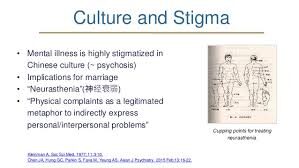 Please describe an interpersonal conflict you experienced and how you went about resolving it.
Please describe an interpersonal conflict you experienced and how you went about resolving it. “Everyone should be in therapy”. Do you agree or disagree which this statement? Please state your reasoning
“Everyone should be in therapy”. Do you agree or disagree which this statement? Please state your reasoning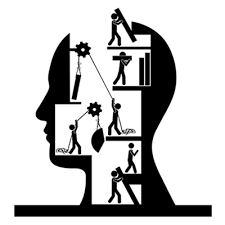 My mother is Japanese and my father is Jewish. Both me and my father were born and raised in Chicago and the city is very much part of our social identities. I have spent most of the last few years in Washington DC., New York City, and Boston, however, and I am now in the process of moving back home to Chicago. I have been working very hard this summer to prepare myself for graduate school in Psychology by studying at the University of XXXX in XXXX, completing an Introduction to Psychology intensive course and currently enrolled in “Research Methods in Psychology.”
My mother is Japanese and my father is Jewish. Both me and my father were born and raised in Chicago and the city is very much part of our social identities. I have spent most of the last few years in Washington DC., New York City, and Boston, however, and I am now in the process of moving back home to Chicago. I have been working very hard this summer to prepare myself for graduate school in Psychology by studying at the University of XXXX in XXXX, completing an Introduction to Psychology intensive course and currently enrolled in “Research Methods in Psychology.” The PsyD Program at XXXX University is my first choice for study at the doctoral level because of your location and the fact that I see my interests as the best fit for your program. A husband of 28 years and a father of a 23-year-old daughter, I am also a cancer survivor and a recovering alcoholic for more than a decade; thus, I feel that I have developed wisdom that will be useful for helping others. In particular, I look forward to continuing to help young men caught up in the juvenile justice system to avoid some of the pitfalls that snare so many young substance abusers, especially teenage alcoholics. I also look forward to helping others to face up to the battle against cancer.
The PsyD Program at XXXX University is my first choice for study at the doctoral level because of your location and the fact that I see my interests as the best fit for your program. A husband of 28 years and a father of a 23-year-old daughter, I am also a cancer survivor and a recovering alcoholic for more than a decade; thus, I feel that I have developed wisdom that will be useful for helping others. In particular, I look forward to continuing to help young men caught up in the juvenile justice system to avoid some of the pitfalls that snare so many young substance abusers, especially teenage alcoholics. I also look forward to helping others to face up to the battle against cancer.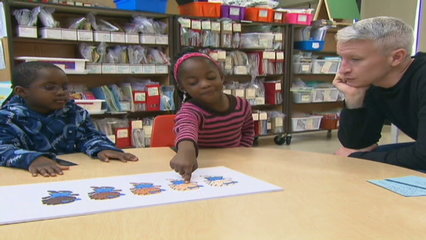 A new mom, I could not be more enthused with new directions in my study of Psychology, especially my focus on becoming a Clinical Child Psychologist. As a young black woman born and raised until the age of 15 in our native Guyana, I relate especially well with children of color, particularly those that are at risk and from disadvantaged, marginalized, or recent immigrant backgrounds. While completing my MA in Developmental Psychology (2014), I had the chance to do my practicum in a child life setting where I would perform medical play with children arriving for pre-hospitalization. Most of these children were from lower-class families and had developmental delays. This experience inspired me with great passion and inner drive to work with children and their families in these circumstances.
A new mom, I could not be more enthused with new directions in my study of Psychology, especially my focus on becoming a Clinical Child Psychologist. As a young black woman born and raised until the age of 15 in our native Guyana, I relate especially well with children of color, particularly those that are at risk and from disadvantaged, marginalized, or recent immigrant backgrounds. While completing my MA in Developmental Psychology (2014), I had the chance to do my practicum in a child life setting where I would perform medical play with children arriving for pre-hospitalization. Most of these children were from lower-class families and had developmental delays. This experience inspired me with great passion and inner drive to work with children and their families in these circumstances. I write the following in support of my transfer from the MLIS Program to the PHD Program in Behavioral Science at the University of XXXX. Earning my PHD in Behavioral Science in your dynamic program at UXX will enable me to fulfill my long-term dreams, which have taken shape more recently- hence the transfer. In particular, I want to do research on role-playing as a form of interactive group therapy and study the psychological peculiarities of online interaction in depth. I’m prepared to put my computer skills to work at the service of research in psychology
I write the following in support of my transfer from the MLIS Program to the PHD Program in Behavioral Science at the University of XXXX. Earning my PHD in Behavioral Science in your dynamic program at UXX will enable me to fulfill my long-term dreams, which have taken shape more recently- hence the transfer. In particular, I want to do research on role-playing as a form of interactive group therapy and study the psychological peculiarities of online interaction in depth. I’m prepared to put my computer skills to work at the service of research in psychology
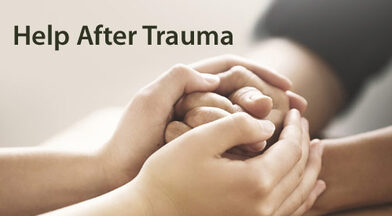 I ask for acceptance to earn the PsyD Degree at the XXXX Institute so that I might add the final and most important professional hat to my repertoire of historically interconnected or culminating roles. First, I gave my all for my country as a soldier; then I became an Episcopal Priest. Since June of 2014, I have served as the Director of Admissions at the XXXX School Prior to this position, I served for two years as a parish priest at XXXX Episcopal Church in XXXX. The cause to which I have decided to vote the balance and hopefully by far most significant part of my professional life is that of helping our veterans to heal. My comrades have been thrust into questionable moral situations for a very long time, forced to engage in many morally questionable activities, and with all too great a frequency fall into moral decay, as a result of stress, violence, and in some cases their own moral failure. I see the Wright Institute as the best fit for my interests, an academic community in which to find support and ideas to empower and inspire me to write a doctoral dissertation on the subject of Moral Injury and how it is related to PTSD.
I ask for acceptance to earn the PsyD Degree at the XXXX Institute so that I might add the final and most important professional hat to my repertoire of historically interconnected or culminating roles. First, I gave my all for my country as a soldier; then I became an Episcopal Priest. Since June of 2014, I have served as the Director of Admissions at the XXXX School Prior to this position, I served for two years as a parish priest at XXXX Episcopal Church in XXXX. The cause to which I have decided to vote the balance and hopefully by far most significant part of my professional life is that of helping our veterans to heal. My comrades have been thrust into questionable moral situations for a very long time, forced to engage in many morally questionable activities, and with all too great a frequency fall into moral decay, as a result of stress, violence, and in some cases their own moral failure. I see the Wright Institute as the best fit for my interests, an academic community in which to find support and ideas to empower and inspire me to write a doctoral dissertation on the subject of Moral Injury and how it is related to PTSD.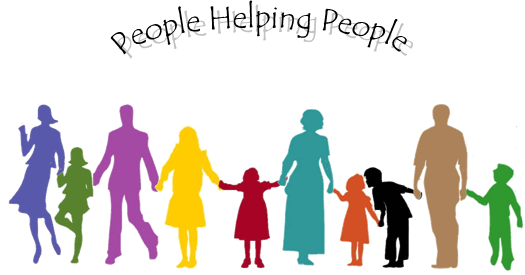 Now 27, I came to America from my native Bangladesh at the age of 12, just in time to learn to speak English really well, with an accent that is barely noticeable. Still, I was old enough when I made this journey to remember well my land of origin with its culture, language, and feelings.
Now 27, I came to America from my native Bangladesh at the age of 12, just in time to learn to speak English really well, with an accent that is barely noticeable. Still, I was old enough when I made this journey to remember well my land of origin with its culture, language, and feelings. I am writing on behalf of my application to earn the Masters Degree in Mental Health Counseling at XXXX because I see your program as the optimal institution in the world to help me learn to make my optimal contribution to the practice of Mental Health Counseling in my country, Nigeria. I feel comfortable at your historically black institution, and confident that your distinguished faculty, with a special interest in black issues, will guide me in the right directions so as to make sustainable intellectual progress through sharpened intra- and intercultural sensitivities. I hope to contribute to our discussions as someone who is also a medical doctor, underscoring the importance role of physiological factors in most mental health illnesses, especially in a developing country such as Nigeria with widespread, abject poverty, and high levels of civil unrest and violence.
I am writing on behalf of my application to earn the Masters Degree in Mental Health Counseling at XXXX because I see your program as the optimal institution in the world to help me learn to make my optimal contribution to the practice of Mental Health Counseling in my country, Nigeria. I feel comfortable at your historically black institution, and confident that your distinguished faculty, with a special interest in black issues, will guide me in the right directions so as to make sustainable intellectual progress through sharpened intra- and intercultural sensitivities. I hope to contribute to our discussions as someone who is also a medical doctor, underscoring the importance role of physiological factors in most mental health illnesses, especially in a developing country such as Nigeria with widespread, abject poverty, and high levels of civil unrest and violence. I was born in San Antonio, Texas but was soon flown to Tulsa, Oklahoma to live with my Caucasian adoptive family when I was three months old. I would not find out until many years later, naturally, but somehow this fact is relevant to what I have become personally and my professional goals for the future, in ways that I am not yet fully understand or am able to appreciate. What I do know is that given that fact that I am African-American woman raised by white parents, I grew up throughout my formative years with a badge strapped across me 24/7 that said ‘adopted child’. In fact, some of my earliest memories are associated with comments concerning my color as compared to that of my parents. Thus, I wrestled very early on with profound questions of color, identity, parenthood and racism as well, in a variety of forms, some more subtle than others. This is quite clearly a primary factor why I seek to devote my life to at-risk children, primarily children of color—in all shades—those who are in need of community care.
I was born in San Antonio, Texas but was soon flown to Tulsa, Oklahoma to live with my Caucasian adoptive family when I was three months old. I would not find out until many years later, naturally, but somehow this fact is relevant to what I have become personally and my professional goals for the future, in ways that I am not yet fully understand or am able to appreciate. What I do know is that given that fact that I am African-American woman raised by white parents, I grew up throughout my formative years with a badge strapped across me 24/7 that said ‘adopted child’. In fact, some of my earliest memories are associated with comments concerning my color as compared to that of my parents. Thus, I wrestled very early on with profound questions of color, identity, parenthood and racism as well, in a variety of forms, some more subtle than others. This is quite clearly a primary factor why I seek to devote my life to at-risk children, primarily children of color—in all shades—those who are in need of community care. My mother’s illness in 2007 provoked a career shift for me, from business to psychology. Once I found out that she had brain cancer, I immediately withdrew from my MBA Program and threw myself entirely into the study of this new enemy. At the same time that I struggled to adapt to the increasingly dementia-like symptoms that resulted from the tumor, I began to realize that I wanted to study for professional advancement in this area. By December of 2011, I had earned my Post-Graduate Certificate in Dementia Studies along with my Adult Training and Development Certificate. Since then, I have been completing the prerequisite courses for acceptance into the XXXX.
My mother’s illness in 2007 provoked a career shift for me, from business to psychology. Once I found out that she had brain cancer, I immediately withdrew from my MBA Program and threw myself entirely into the study of this new enemy. At the same time that I struggled to adapt to the increasingly dementia-like symptoms that resulted from the tumor, I began to realize that I wanted to study for professional advancement in this area. By December of 2011, I had earned my Post-Graduate Certificate in Dementia Studies along with my Adult Training and Development Certificate. Since then, I have been completing the prerequisite courses for acceptance into the XXXX.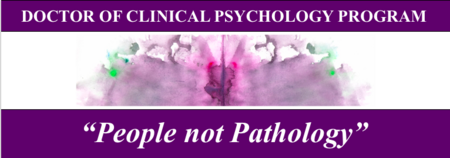 I am a humble applicant to our program who has overcome great difficulty in arriving where she is in life. This is why I ask for special consideration with respect to my low GPA which resulted from the fact that I had to simultaneously work and study full time.
I am a humble applicant to our program who has overcome great difficulty in arriving where she is in life. This is why I ask for special consideration with respect to my low GPA which resulted from the fact that I had to simultaneously work and study full time.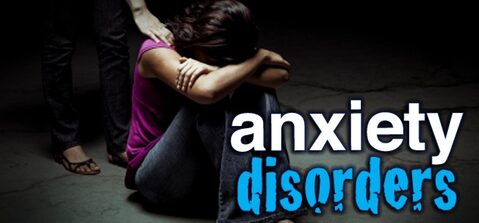 I decided to apply for the clinical PhD program at XXXX because of the thoroughgoing nature of your curriculum and your dedication to research, helping students to decide on the best avenue of research for their interests and intellectual strengths. I hope to become a professional researcher as well as counselor, and I look forward to being prepared at the XXXX because it appears to be the optimal platform for me to begin a career in psychology here on the West Coast, in California, a lovely place which I am increasingly thinking of as home. Your program is very strong in the area of research into anxiety disorder and I am especially looking forward to studying under Dr. XXXX who is distinguished in this area. Nevertheless, while I do hope to focus on anxiety and depression, I want to study these maladies from every angle, both historically and theoretically. I am confident that your Ph.D. Program will give me an opportunity to explore the bigger picture in a cutting-edge program that will help me to think creatively and prepare me to realize my maximum potential.
I decided to apply for the clinical PhD program at XXXX because of the thoroughgoing nature of your curriculum and your dedication to research, helping students to decide on the best avenue of research for their interests and intellectual strengths. I hope to become a professional researcher as well as counselor, and I look forward to being prepared at the XXXX because it appears to be the optimal platform for me to begin a career in psychology here on the West Coast, in California, a lovely place which I am increasingly thinking of as home. Your program is very strong in the area of research into anxiety disorder and I am especially looking forward to studying under Dr. XXXX who is distinguished in this area. Nevertheless, while I do hope to focus on anxiety and depression, I want to study these maladies from every angle, both historically and theoretically. I am confident that your Ph.D. Program will give me an opportunity to explore the bigger picture in a cutting-edge program that will help me to think creatively and prepare me to realize my maximum potential. I am a young Korean woman educated in Japan who now lives in America and wants very much to excel in the area of psychology. I have fallen in love with California and hope to complete my graduate studies here. Since I majored in “Cultural Properties” or issues in Japan, I particularly enjoy studying the complex relationships, at once psychological and historical, that exist among various different Asian groups here in California. The greatest strength of my application to your program is that I am one of few Korean applicants who are fully fluent in Japanese as well as Korean, helping me to bridge one of the most prominent and historically bitter divides in Asia resulting from Japan’s historic occupation of your country.
I am a young Korean woman educated in Japan who now lives in America and wants very much to excel in the area of psychology. I have fallen in love with California and hope to complete my graduate studies here. Since I majored in “Cultural Properties” or issues in Japan, I particularly enjoy studying the complex relationships, at once psychological and historical, that exist among various different Asian groups here in California. The greatest strength of my application to your program is that I am one of few Korean applicants who are fully fluent in Japanese as well as Korean, helping me to bridge one of the most prominent and historically bitter divides in Asia resulting from Japan’s historic occupation of your country.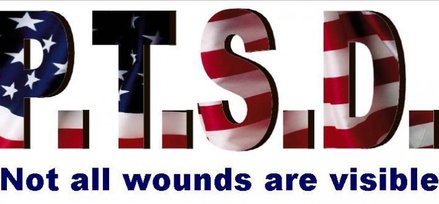 I am applying to your competitive PsyD Program at the XXXX because I am convinced that my drive and determination will enable me to excel. I have a great passion for research in psychology, particularly in the areas of post-traumatic stress disorder (PTSD). Now 36, psychology is a career change for me, a new professional beginning. Married and divorced, I spent 10 years in the mortgage business with my family in the small California town of Visalia where I grew up. After my marriage failed, I completed my bachelor’s degree in 2 ½ years and then sold my home and moved to the city of XXXX.
I am applying to your competitive PsyD Program at the XXXX because I am convinced that my drive and determination will enable me to excel. I have a great passion for research in psychology, particularly in the areas of post-traumatic stress disorder (PTSD). Now 36, psychology is a career change for me, a new professional beginning. Married and divorced, I spent 10 years in the mortgage business with my family in the small California town of Visalia where I grew up. After my marriage failed, I completed my bachelor’s degree in 2 ½ years and then sold my home and moved to the city of XXXX. Why have you chosen the profession of Counseling for graduate study?A recent immigrant from Romania, I have now been living in the US for two years working very hard at bringing my English skills up to a professional level. I worked as a practicing psychologist for 1 year in Romania before I immigrated to the USA at a nursing home, studying and working with patients with Alzheimer’s who came to adore and still miss very much to this day. I also volunteered in my country as a group facilitator and counselor at a shelter for domestic violence victims. I currently volunteer at Southwest Hospital in City, State, where I help discharge patients. I pay special attention to the counselors that I work with in the hospital and I am learning a great deal by befriending them. They have also encouraged me to apply to graduate school in counseling.
Why have you chosen the profession of Counseling for graduate study?A recent immigrant from Romania, I have now been living in the US for two years working very hard at bringing my English skills up to a professional level. I worked as a practicing psychologist for 1 year in Romania before I immigrated to the USA at a nursing home, studying and working with patients with Alzheimer’s who came to adore and still miss very much to this day. I also volunteered in my country as a group facilitator and counselor at a shelter for domestic violence victims. I currently volunteer at Southwest Hospital in City, State, where I help discharge patients. I pay special attention to the counselors that I work with in the hospital and I am learning a great deal by befriending them. They have also encouraged me to apply to graduate school in counseling.